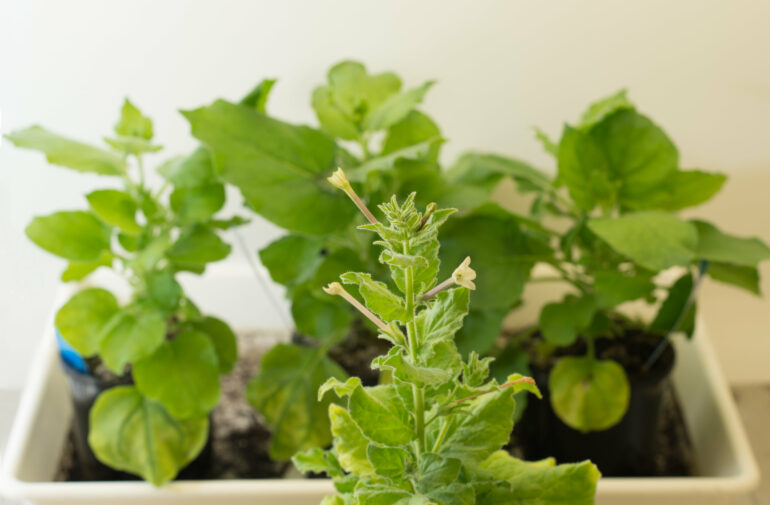An international research project led by QUT has made a major step forward on the potential of the Australian plant, N. benthamiana, to grow therapeutic proteins and vaccines cheaply and quickly. The research, titled “A multi-omic Nicotiana benthamiana resource for fundamental research and biotechnology” and published in Nature Plants, has determined the complete genome sequence of this plant, which has been used in the production of least three COVID-19 vaccines and three COVID-19 testing kits.
QUT Professor Peter Waterhouse, from the ARC Center of Excellence for Plant Success in Nature & Agriculture, said the sequencing of the human genome had enabled huge advances in medical science and diagnostics.
“Similarly, determining the sequence of the N. benthamiana genome has the potential to enhance biotechnological and agricultural research and plant-based production of therapeutics,” Professor Waterhouse said.
“This endemic Australian plant is regarded as a workhorse for fundamental research and biotechnology worldwide because it is the species of choice for testing and implementing advanced discovery and engineering approaches in plant biology, thanks to its unmatched, fast, transient transgene analysis.”
Professor Waterhouse said a website (www.nbenth.com), provided complete access to the genome and its annotation and had been produced for the global scientific community to use as a roadmap to guide their research.
“N. benthamiana is used by biopharming researchers around the world as a biofactory to produce complex biologics (medicines that have been created in using living cells or organisms) with low production costs, high yields, and ease of scalability,” he said.
“The now fully sequenced genome will further improve the usefulness and versatility of it and of its distantly related wild strain (QLD) of N. benthamiana.”
Professor Chris Winefield, from Lincoln University, New Zealand and an associate investigator in the ARC Center of Excellence for Plant Success in Nature & Agriculture, said this genome resource had provided insight into the mobile elements in the genome of N. benthamiana.
“It has shown a recent and ongoing burst of activity that may underpin this plant’s remarkable abilities to survive in Australia’s harshest environments,” Professor Winefield said.
More information:
Buddhini Ranawaka et al, A multi-omic Nicotiana benthamiana resource for fundamental research and biotechnology, Nature Plants (2023). DOI: 10.1038/s41477-023-01489-8
Provided by
Queensland University of Technology
Citation:
Genetic blueprint for vaccine and therapeutics production in plants (2023, August 11)



